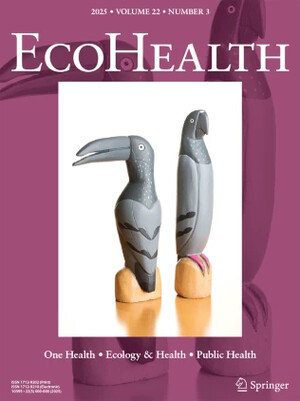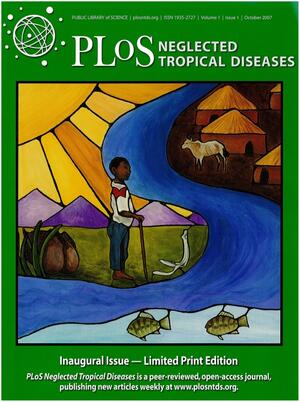
Environmental predictors of bovine Eimeria infection in western Kenya
Abstract
Eimeriosis is caused by a protozoan infection affecting most domestic animal species. Outbreaks in cattle are associated with various environmental factors in temperate climates but limited work has been done in tropical settings. The objective of this work was to determine the prevalence and environmental factors associated with bovine Eimeria spp. infection in a mixed farming area of western Kenya. A total of 983 cattle were sampled from 226 cattle-keeping households. Faecal samples were collected directly from the rectum via digital extraction and analysed for the presence of Eimeria spp. infection using the MacMaster technique. Individual and household level predictors of infection were explored using mixed effects logistic regression. The prevalence of individual animal Eimeria infection was 32.8% (95% CI 29.9–35.9). A positive linear relationship was found between risk of Eimeria infection and increasing temperature (OR = 1.4, 95% CI 1.06–1.86) and distance to areas at risk of flooding (OR = 1.49, 95% CI 1.17–1.91). There was weak evidence of non-linear relationship between Eimeria infection and the proportion of the area around a household that was classified as swamp (OR = 1.12, 95% CI 0.87–1.44; OR (quadratic term) = 0.85, 95% CI 0.73–1.00), and the sand content of the soil (OR = 1.18, 95% CI 0.91–1.53; OR (quadratic term) = 1.1, 95% CI 0.99–1.23). The risk of animal Eimeria spp. infection is influenced by a number of climatic and soil-associated conditions.
Citation
Makau, D.N., Gitau, G.K., Muchemi, G.K., Thomas, L.F., Cook, E.A.J., Wardrop, N.A., Fèvre, E.M. and Glanville, W.A. de. 2017. Environmental predictors of bovine Eimeria infection in western Kenya. Tropical Animal Health and Production 49(2):409–416.









